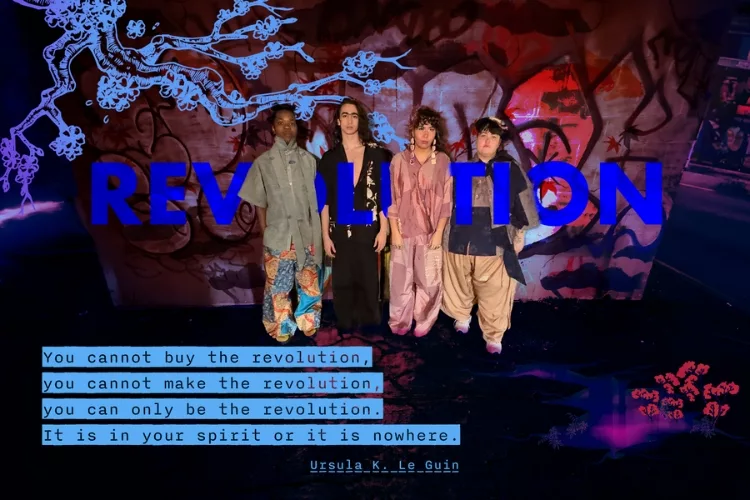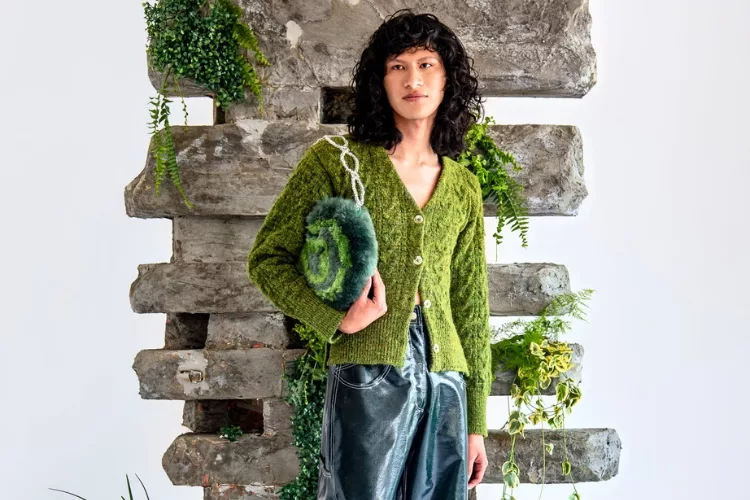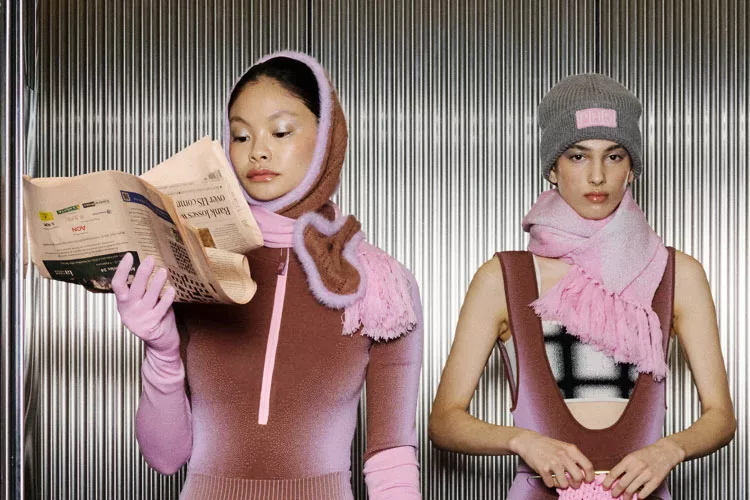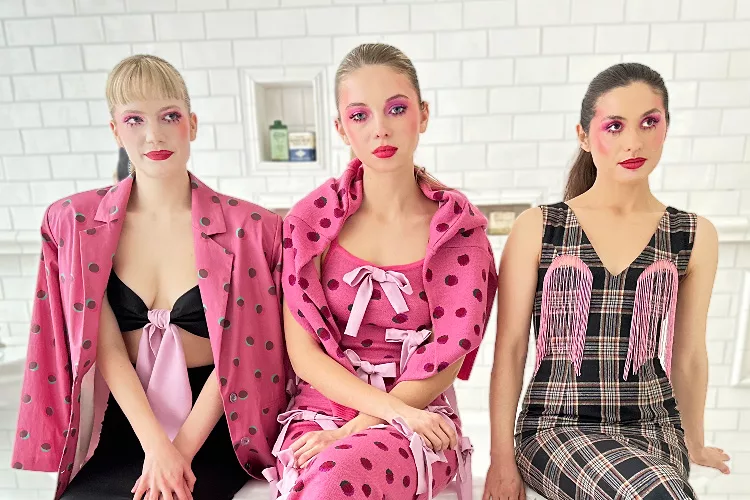
When we think of the way forward in fashion a key metric is materials. Are they biodegradable? Non-toxic? Low in energy and resource consumption? These are a few of the things on our ‘wish list’. So while much of the Global Fashion Summit could be summed up as “blah blah blah” as Greta Thunberg would say, one bright point was Copenhagen brand Ganni.
An affordable luxury label, Ganni is pretty much upfront about who and what they are. A fashion brand that “thrives on newness and consumption which is a major contradiction to the concept of sustainability”.
So why are we writing an article about them? To start with, they are truly transparent in an easy to follow report. By 2023 they are committed to using the most responsible solutions available. This year alone, they’ve gone from 88% organic or recycled cotton in 2021, to closing the gap to 100%. They’re not far behind on their wool sourcing or their polys.
Now Ganni is focusing on what they call Fabrics of the Future
“Fabric innovations will play a crucial role in making fashion more circular, but for that to happen brands need to place bets and take risks. We refuse to accept the industry status quo and with this initiative, we have created a solid framework where research, innovation and cross-industry knowledge sharing can live together.
Fabrics of the future were put in place to kick-start our ambitions of a 50% absolute carbon reduction by 2027. Through the initiative, we’ve committed to researching and developing innovative materials to inform the transition towards more circularity in fashion.”
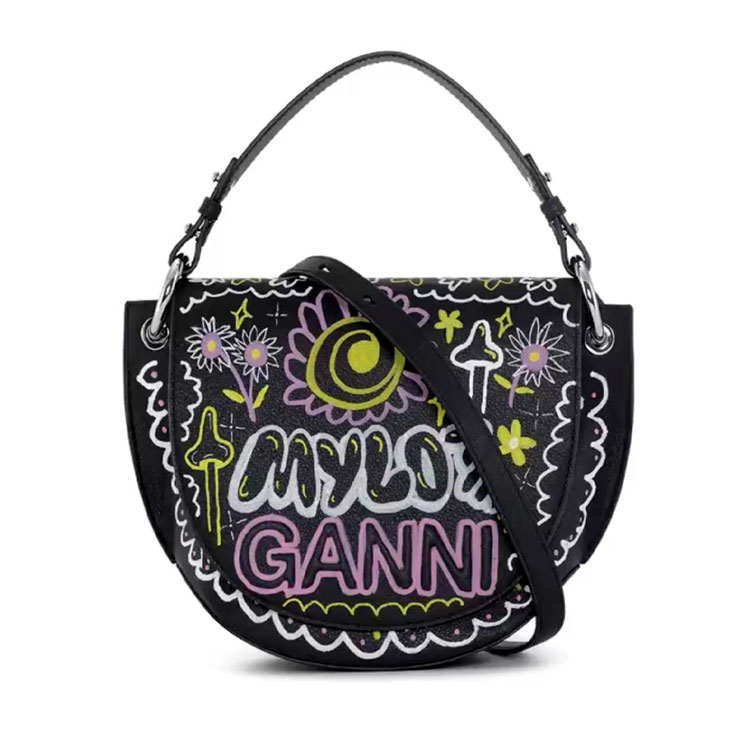
GANNI X MYLO
On a mission to make virgin animal leather a thing of the pas
Ganni collaborated with Bolt Thread’s mycelium-based leather alternative Mylo on a wallet and handbag. Mylo material is certified bio-based, 100% animal-free, and is grown in cutting edge vertical farming facilities that are powered by 100% renewable energy. And unlike plastic based “vegan leather” MYLO is made using Green Chemistry Principles, meaning no harmful chemicals have been used in the production process.
The first collection will include limited edition wallets and one-of-a-kind bags.
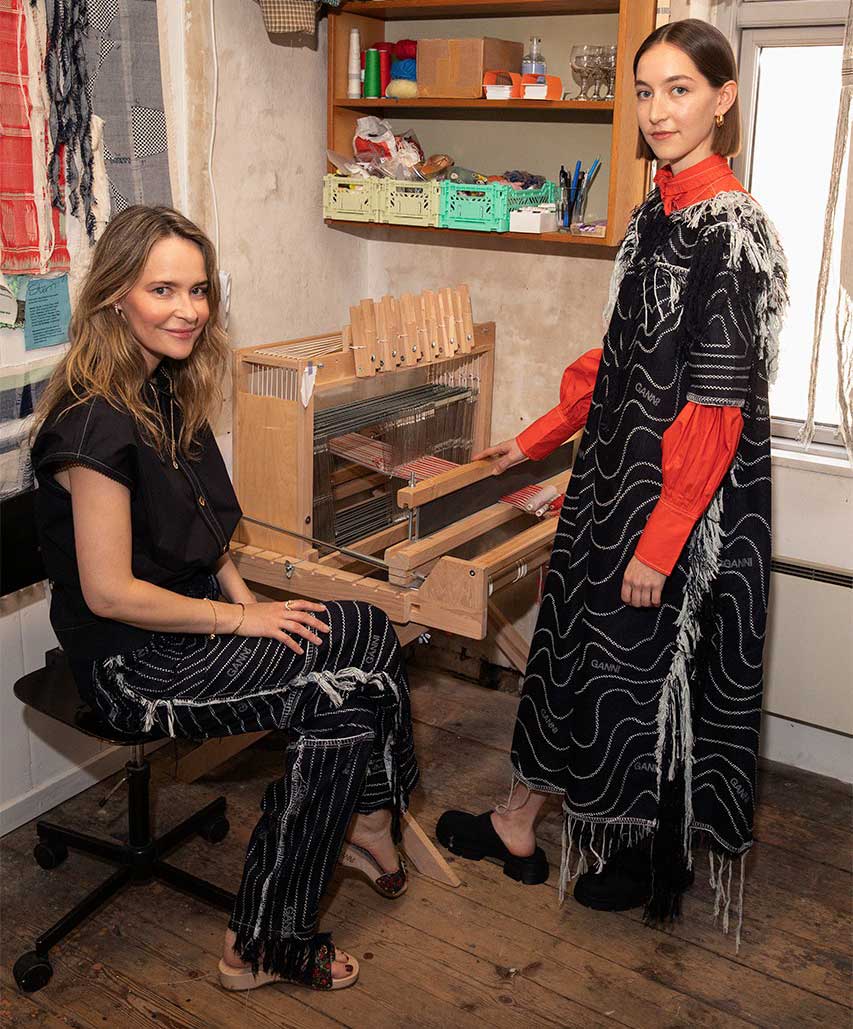
GANNI X STEM
Every day, thousands of pounds of fabric are wasted in fashion supply chains where up to a quarter of all fabrics end up as cut-offs during the garment production process only to be discarded as waste.
GANNI has joined forces with fellow Copenhagen-based brand Stem to create a three-piece circular collection. The collection was brought to life using Stem’s unique zero-waste production process, which uses the entire fabric, eliminating all cutting and sewing waste.
In addition to the production being zero waste, the clothes are recyclable because they’re made of 100% organic cotton with removable buttons. And they’ll be shipped in paper bags to avoid plastic waste.
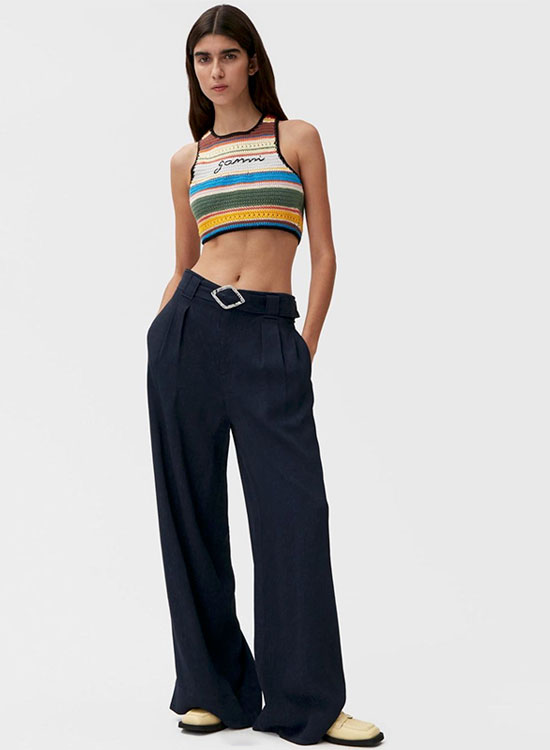
GANNI X CIRCULOSE
CIRCULOSE is a new natural material made by recovering worn-out cotton clothes into a dissolving pulp. In a breakthrough process powered by 100% renewable energy, CIRCULOSE transforms discarded textiles into a new material that needs no cotton fields, no oil and no trees.
As an introduction, two pants will be made of 100% viscose with 15% CIRCULOSE. While that is admittedly a small amount it’s worth noting that it’s redefining what is waste and making something new. The process also uses no harmful chemicals.
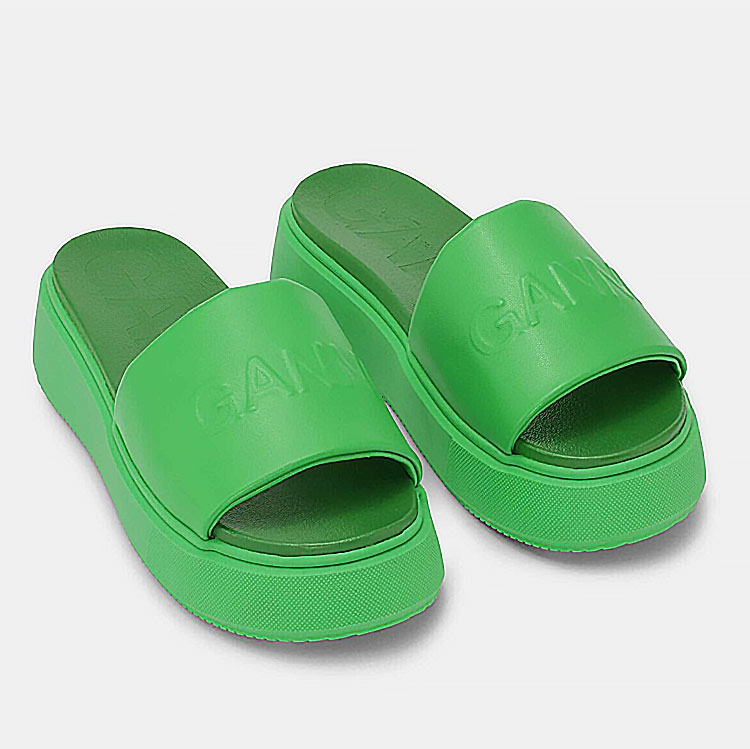
GANNI X VEGEA
While not part of what they showed at the GFS, GANNI is also working with VEGEA. This is an innovative material using left-over grape skins from winemaking, vegetable oils and natural fibers from agriculture. Using left-over material helps keep waste from ending up in landfills.
No toxic chemicals, heavy metals or other dangerous solvents are used in the production process. VEGEA has a high proportion of plant-based content. 55% bio-compound (vegetable oil and grape) and 45% water based polyurethane –using less oil.
Related Articles
Meet Vera Banas: ANDEL co-founder
How Biomaterials are Changing the Future of Fashion
Early Majority Takes on Fast Fashion and Talks Degrowth
What is regenerative fashion? Here are our fave brands
Fossil-free Activewear: How to go from oil-based to Natural Fiber

